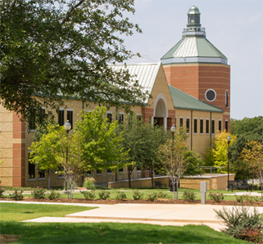Amy McHenry
Amy McHenry, PhD
Malaria remains a significant cause of illness and death worldwide. Dr. McHenry researches the Plasmodium vivax Duffy-binding protein’s interaction with the human red blood cell. This parasite protein is required for successful invasion into the human red blood cell and if the interaction is absent, disease does not occur. Targeting this parasite protein for vaccine development comes with a number of substantial challenges. One of these is that the Duffy-binding protein is highly polymorphic, meaning it varies form one strain to another. This makes it very difficult for the immune system to mount an effect response, as the Duffy-binding protein is, essentially, a “moving target”. Currently, Dr. McHenry is working in collaboration with her friend and colleague, Patchanee Chootong of Mahidol University in Bangkok, Thailand to better understand naturally acquired immunity to Plasmodium vivax. A deeper understanding of how individuals eventually develop some level of clinical immunity to malaria will help to guide development of an effective Duffy-binding protein-based vaccine.
Postdoctoral Research Associate and Project Manager, University of South Florida, 2009-2011
Ph.D. Molecular Parasitology from University of Notre Dame, 2009
B.S. Biology, Honors from Union College, 2004
Publications
Wongkidakarn S, McHenry AM, Sattabongkot J, Adams JH, Chootong P. (2016) Strain-transcending inhibitory antibodies against homologous and heterologous strains of Duffy binding protein region II. PLoS One11(5):e0154577.
Chootong P, McHenry AM, Ntumngia FB, Sattabongkot J, Adams JH. (2014) The association of Duffy binding protein region II polymorphisms and its antigenicity in Plasmodium vivax isolates from Thailand. Parasitol Int63(6): 858-64.
Ntumngia FB, Barnes SJ, McHenry AM, George MT, Schloegel J, Adams JH. (2014) Immunogenicity of a synthetic vaccine based on the Plasmodium vivax Duffy Binding Protein Region II. Clin Vaccine Immunol 21(9): 1215-23.
Ntumngia FB, Schloegel J, McHenry AM, Barnes SJ, George MT, Kennedy S, Adams JH. (2013) Immunogenicity of single versus mixed allele vaccines of Plasmodium vivax Duffy binding protein region II. Vaccine 31(40): 4382-8.
Ntumngia FB, Schloegel J, Barnes SJ, McHenry AM, Singh S, King CL, Adams JH. (2012) Conserved and variant epitopes of Plasmodium vivax Duffy binding protein as targets of inhibitory monoclonal antibodies. Infect Immun 80(3): 1203-8.
King CL, Adams JH, Xianli J, Grimberg BT, McHenry AM, Greenberg LJ, Siddiqui A, Howes RE, da Silva-Nunes M, Ferreira MU, Zimmerman PA. (2011) Fy(a)/Fy(b) antigen polymorphism in human erythrocyte Duffy antigen affects susceptibility to Plasmodium vivax malaria. Proc Natl Acad Sci USA 108(50): 20113-8.
McHenry AM, Barnes SJ, Ntumngia FB, King CL, Adams JH. (2011) Determination of the molecular basis for a limited dimorphism, N417K, in the Plasmodium vivax Duffy-binding protein. PLoS One 6(5):e20192.
McHenry AM, Barnwell JW, Adams JH. (2010) Plasmodium vivax DBP binding to Aotus nancymai erythrocytes is Duffy antigen dependent. J Parasitol 96(1): 225-7.
Ceravolo IP, Sanchez BA, Sousa TN, Guerra BM, Soares IS, Braga EM, McHenry AM, Adams JH, Brito CF, Carvalho LH. (2009) Naturally acquired inhibitory antibodies to Plasmodium vivax Duffy binding protein are short-lived and allele-specific following a single malaria infection. Clin Exp Immunol 156(3): 502-10.
Ntumngia FB, McHenry AM, Barnwell JW, Cole-Tobian J, King CL, Adams JH. (2009) Genetic variation among Plasmodium vivax isolates adapted to non-human primates and the implication for vaccine development. AJTMH 80(2): 218-27.
Grimberg BT, Udomsangpetch R, Xainli J, McHenry A, Panichakul T, Sattabongkot J, Cui L, Bockarie M, Chitnis C, Adams J, Zimmerman PA, King CL. (2007) Plasmodium vivax invasion of human erythrocytes inhibited by antibodies directed against the Duffy binding protein. PloS Med 4(12): e337.
McHenry AM, Adams JH. (2006) The crystal structure of P. knowlesi DBPa DBL domain and its implications for immune evasion. Trends Biochem Sci 31(9): 487-91.
Chattopadhyay D, Rayner J, McHenry AM, Adams JH. (2006) The structure of the Plasmodium falciparumEBA175 ligand domain and the molecular basis of host specificity. Trends Parasitol 22(4): 143-5.
Patents:
Adams, John H.; Ntumngia, Francis B.; Schloegel, Jesse L.; Barnes, Samantha J.; McHenry, Amy M. & Chootong, Patchanee. 2015. Synthetic antigen based on the ligand domain of the Plasmodium vivax Duffy Binding Protein. U.S. Patent 9,120,869, filed March 25, 2014 and issued September 1, 2015.
Adams, John H.; Ntumngia, Francis B.; Schloegel, Jesse L.; Barnes, Samantha J.; McHenry, Amy M. & Chootong, Patchanee. 2014. Synthetic antigen based on the ligand domain of the Plasmodium vivax Duffy Binding Protein. U.S. Patent 8,784,832, filed August 20, 2012 and issued July 22, 2014.
Arthur J. Schmitt Presidential PhD Fellowship, University of Notre Dame, 2004-2008
William Dale Leech Award, Union College Division of Math & Science, 2004
National Merit Scholar, 1999
When not in the classroom, you will likely find Dr. McHenry doing something related to community service, missions or her family. She is passionate about missions, Christian education and community service. Dr. McHenry is a member of the Cleburne Emmanuel Seventh-day Adventist Church where she is the Children’s Ministries director and has developed and directed several Vacation Bible School programs over the years. She grew up in a missionary family in Malawi (birth-1985) and Brazil (1991-1994) and served as a student missionary to the Czech Republic (2001-2002). She delivers Meals on Wheels in Keene and coordinates various community service projects with the Honors Program. She enjoys reading about people, history, science and politics. She is married to Peter McHenry (the other Dr. McHenry in the Biological Sciences Department) and they have three energetic children and two comfortable cats.



